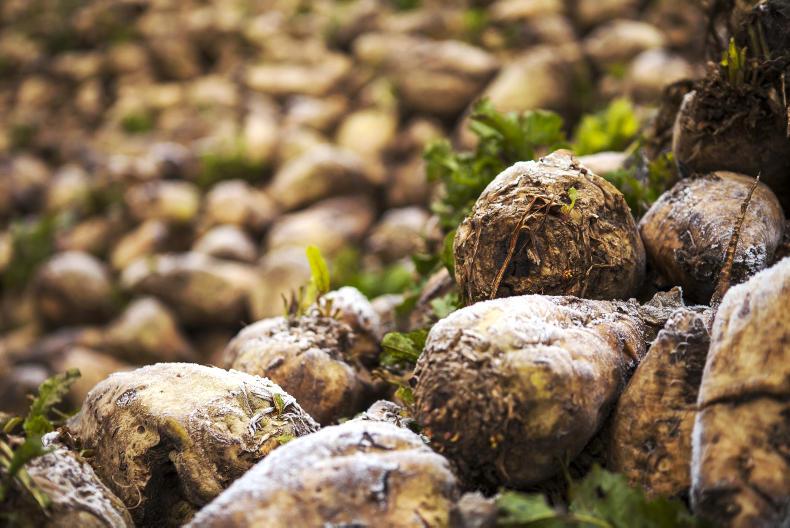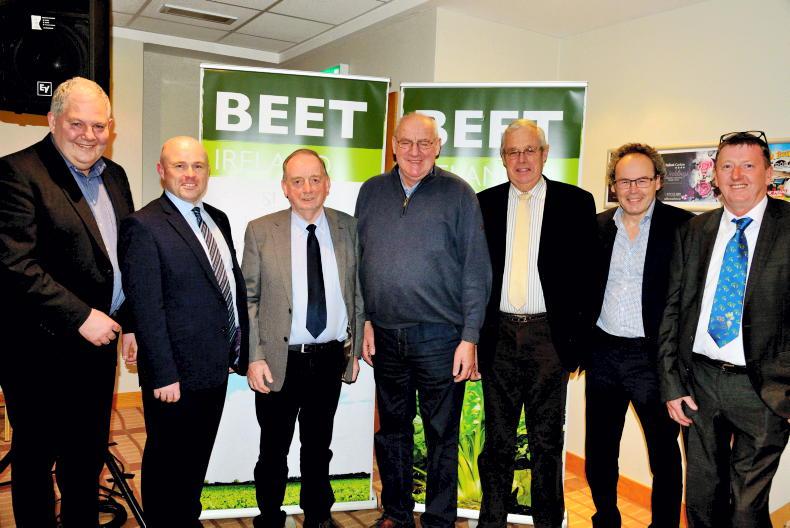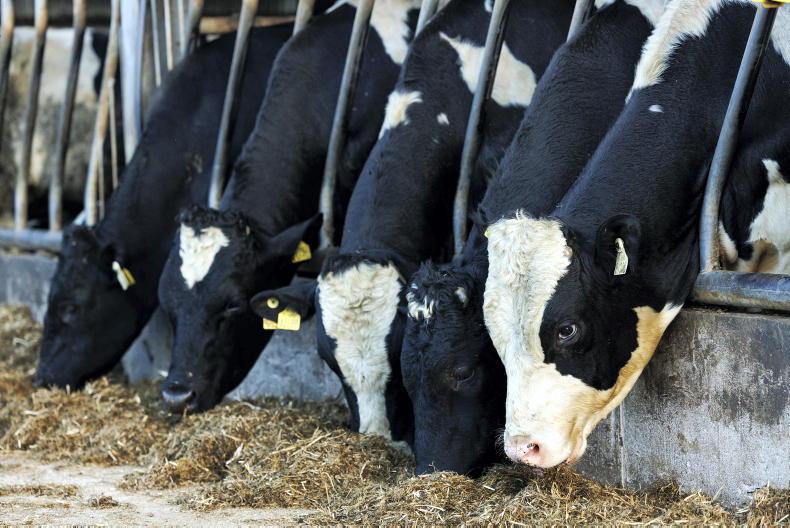Beet Ireland, chaired by Michael Hoey of Country Crest, is seeking to raise an initial €1m from farmers to bring back the Irish beet industry. This initial investment is earmarked to fund the pre-development stage of a proposed new sugar processing and bioethanol factory outside Castledermot, on the Kildare-Carlow border.
The investment will be raised in a number of rounds, with this round open until the end of this year.

What is being built?
Beet Ireland proposes to build a €300m sugar processing and bioethanol factory that will have a capacity to produce 210,000t of sugar annually, 19m litres of bioethanol and 250,000t of beet pulp.
This will require 1.4m tonnes of sugar beet grown on approximately 50,000 acres by 1,000 growers within a 60km radius of the factory. Beet Ireland acquired a site outside Castledermot last year. It was selected due to surrounding tillage land, proximity to key road networks, raw materials, utilities and suitable climatic conditions.
What’s the business case?
The business case for this project centres on displacing Ireland’s current sugar, bioethanol (see opposite) and beet pulp imports.
It is envisaged that the 210,000t of refined sugar would mainly serve the domestic retail market. The bioethanol would be for use in the Irish transport sector.
Beet Ireland says there are also opportunities in the pharma and plastics sectors. It believes that an Irish sugar beet industry would create security of supply and product traceability for users in the Irish food and drinks, pharmaceutical and retail sectors and that there may be a premium achieved for an Irish sourced fully traceable sugar.
The main revenue generators for the proposed project are sugar, beet pulp for animal feed and bioethanol. While Beet Ireland has not indicated the price for beet ex-farm, it says the price will be determined by the global price of sugar, the business efficiency/profitability and equity dividends.
The key cost drivers will be sugar price, energy costs, beet haulage to factory and beet volume through the factory. No projected revenues, operational profits targets, margins or the sugar/bioethanol/beet pulp split are known at this stage.
Business structure
Beet Ireland says it wants to establish a sugar production business model with strong grower participation. The proposed framework would combine Beet Ireland and a growers’ co-operative to form a joint venture.
Beet Ireland, which owns the site, will use the value of this to take an initial 49% stake in the newly formed joint venture. The growers’ co-op would be formed after the €1m is collected and take a 51% stake in the joint venture.
It is anticipated that the total project capital outlay of €300m will be funded through a combination of sugar beet growers, investors and bank finance.
The lead time to construction and operational stage is currently three to four years, which means it could be up and running as early as 2022.
It is envisaged that the funding rounds will take place in line with the development costs.
This investment round
Beet Ireland want beet growers to participate as stakeholders and is seeking 1,000 growers to commit €1,000 each initially to go towards the next stage of feasibility, planning and development. The monies raised will be used to fund pre-construction costs, including planning costs, and professional fees involved with the development.
Proposed funding structure (see Figure 1)
Overall requirement to raise €300m in the form of €100m in equity (capital) and €200m in bank debt. Initial grower commitment of €1m.Beet Ireland to invest a similar value in the form of the factory site. Formation of a new sugar beet joint venture 49:51 split between Beet Ireland and a sugar beet grower’s co-op. Grower investment of around €1,000 per acre to raise €50m depending on what share farmers set out to own. This gives growers a contract to supply. Obviously the more invested, the greater the share owned by farmers. A further investment round from investors (if farmers do not raise the total €100m required before going for bank finance) of at least €50m. Bank finance of up to €200m. This could be raised from a variety of sources and Beet Ireland has identified the pillar banks, the European Investment Bank and the Irish Strategic Investment Fund, as potential sources of finance. It then needs a further working capital requirement from banks when up and running. Michael Hoey – Director, Country Crest.Jim O’Regan – farmer.Pat Cleary – farmer and director, Cleary Compost & Shredding Limited.Simon Cross – Director, Cross Agricultural Engineering.Chris Harmon – Country Crest financial controller.Brian Arnold – consultant.
Beet Ireland, chaired by Michael Hoey of Country Crest, is seeking to raise an initial €1m from farmers to bring back the Irish beet industry. This initial investment is earmarked to fund the pre-development stage of a proposed new sugar processing and bioethanol factory outside Castledermot, on the Kildare-Carlow border.
The investment will be raised in a number of rounds, with this round open until the end of this year.

What is being built?
Beet Ireland proposes to build a €300m sugar processing and bioethanol factory that will have a capacity to produce 210,000t of sugar annually, 19m litres of bioethanol and 250,000t of beet pulp.
This will require 1.4m tonnes of sugar beet grown on approximately 50,000 acres by 1,000 growers within a 60km radius of the factory. Beet Ireland acquired a site outside Castledermot last year. It was selected due to surrounding tillage land, proximity to key road networks, raw materials, utilities and suitable climatic conditions.
What’s the business case?
The business case for this project centres on displacing Ireland’s current sugar, bioethanol (see opposite) and beet pulp imports.
It is envisaged that the 210,000t of refined sugar would mainly serve the domestic retail market. The bioethanol would be for use in the Irish transport sector.
Beet Ireland says there are also opportunities in the pharma and plastics sectors. It believes that an Irish sugar beet industry would create security of supply and product traceability for users in the Irish food and drinks, pharmaceutical and retail sectors and that there may be a premium achieved for an Irish sourced fully traceable sugar.
The main revenue generators for the proposed project are sugar, beet pulp for animal feed and bioethanol. While Beet Ireland has not indicated the price for beet ex-farm, it says the price will be determined by the global price of sugar, the business efficiency/profitability and equity dividends.
The key cost drivers will be sugar price, energy costs, beet haulage to factory and beet volume through the factory. No projected revenues, operational profits targets, margins or the sugar/bioethanol/beet pulp split are known at this stage.
Business structure
Beet Ireland says it wants to establish a sugar production business model with strong grower participation. The proposed framework would combine Beet Ireland and a growers’ co-operative to form a joint venture.
Beet Ireland, which owns the site, will use the value of this to take an initial 49% stake in the newly formed joint venture. The growers’ co-op would be formed after the €1m is collected and take a 51% stake in the joint venture.
It is anticipated that the total project capital outlay of €300m will be funded through a combination of sugar beet growers, investors and bank finance.
The lead time to construction and operational stage is currently three to four years, which means it could be up and running as early as 2022.
It is envisaged that the funding rounds will take place in line with the development costs.
This investment round
Beet Ireland want beet growers to participate as stakeholders and is seeking 1,000 growers to commit €1,000 each initially to go towards the next stage of feasibility, planning and development. The monies raised will be used to fund pre-construction costs, including planning costs, and professional fees involved with the development.
Proposed funding structure (see Figure 1)
Overall requirement to raise €300m in the form of €100m in equity (capital) and €200m in bank debt. Initial grower commitment of €1m.Beet Ireland to invest a similar value in the form of the factory site. Formation of a new sugar beet joint venture 49:51 split between Beet Ireland and a sugar beet grower’s co-op. Grower investment of around €1,000 per acre to raise €50m depending on what share farmers set out to own. This gives growers a contract to supply. Obviously the more invested, the greater the share owned by farmers. A further investment round from investors (if farmers do not raise the total €100m required before going for bank finance) of at least €50m. Bank finance of up to €200m. This could be raised from a variety of sources and Beet Ireland has identified the pillar banks, the European Investment Bank and the Irish Strategic Investment Fund, as potential sources of finance. It then needs a further working capital requirement from banks when up and running. Michael Hoey – Director, Country Crest.Jim O’Regan – farmer.Pat Cleary – farmer and director, Cleary Compost & Shredding Limited.Simon Cross – Director, Cross Agricultural Engineering.Chris Harmon – Country Crest financial controller.Brian Arnold – consultant. 









SHARING OPTIONS